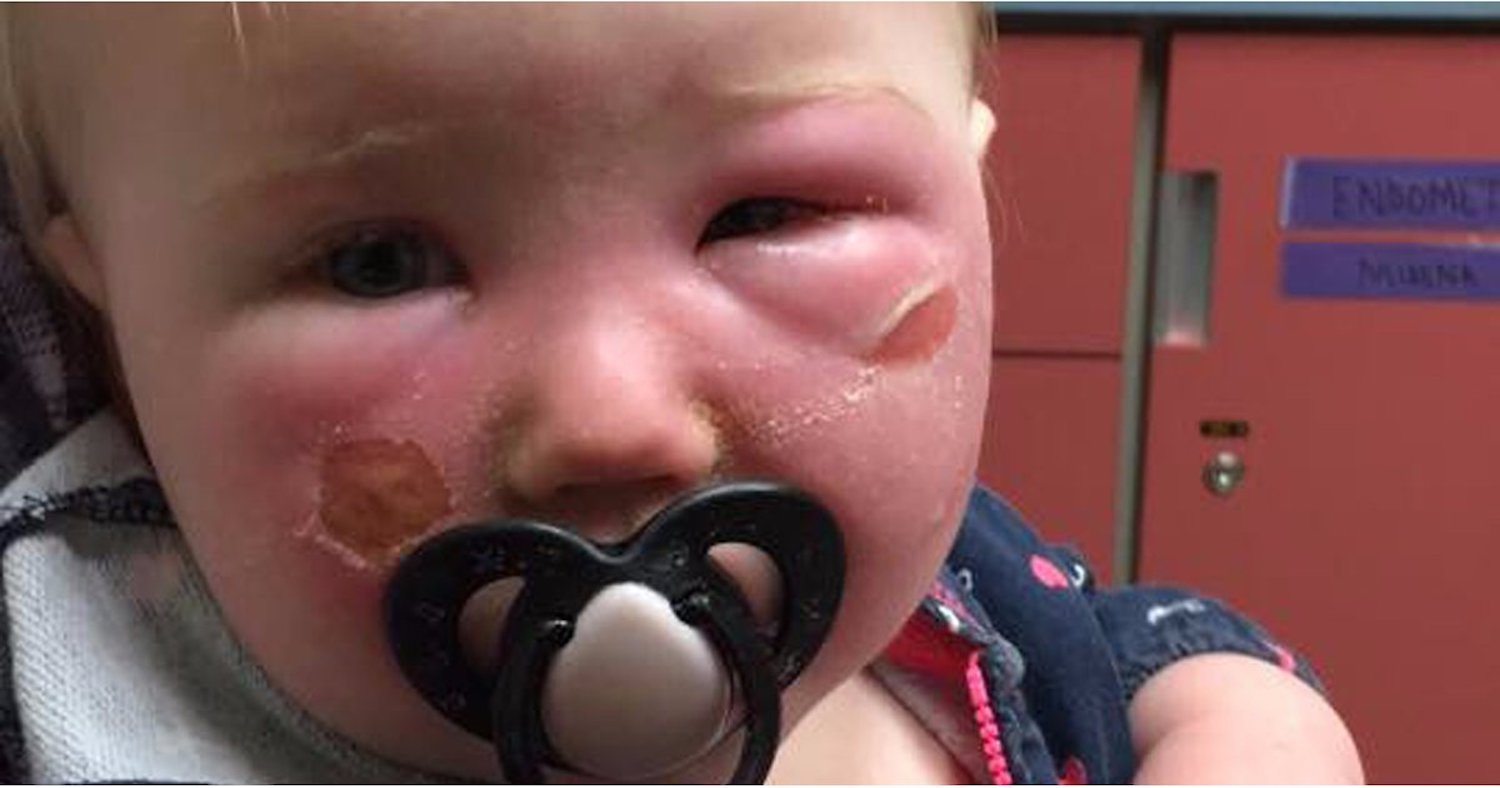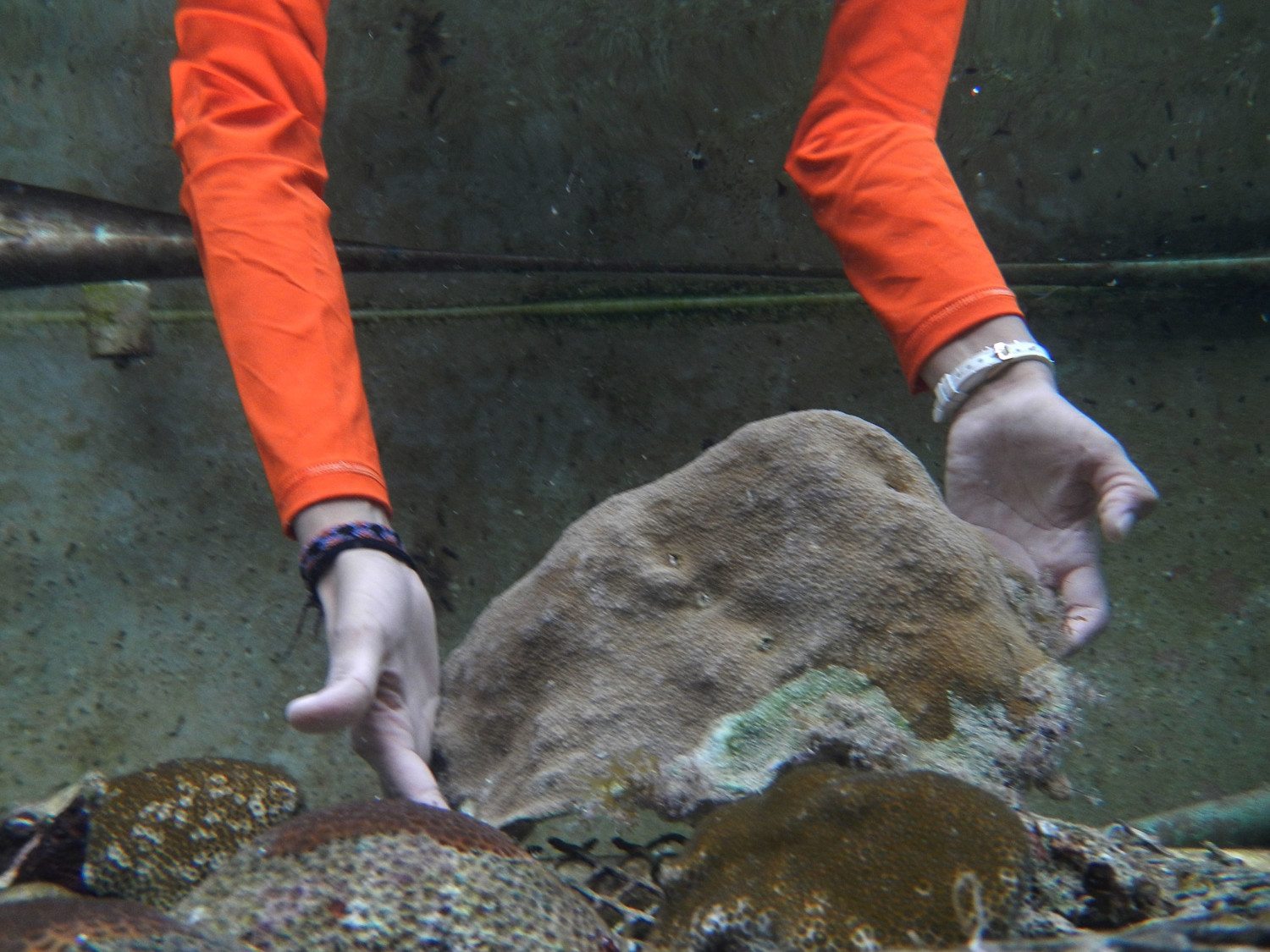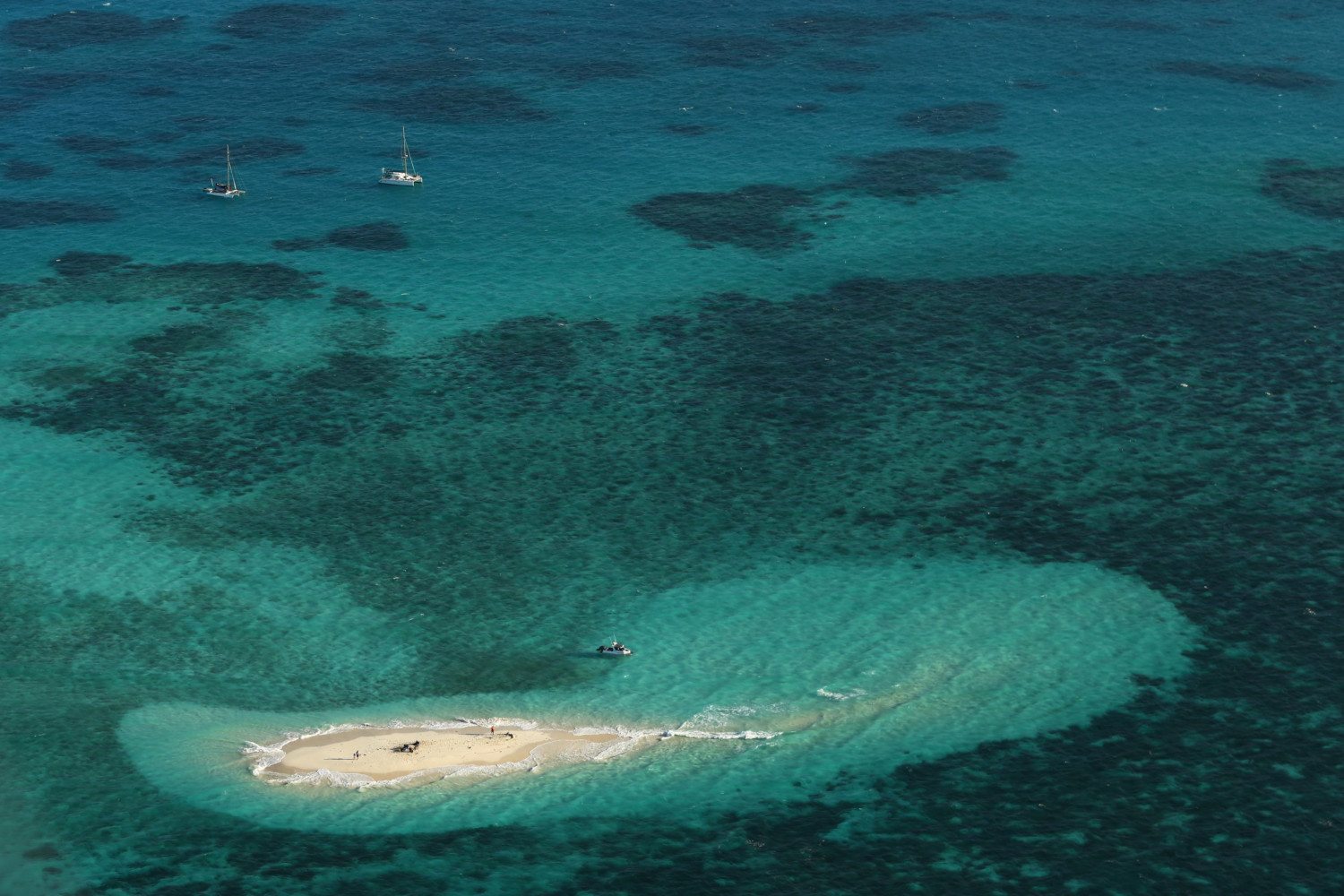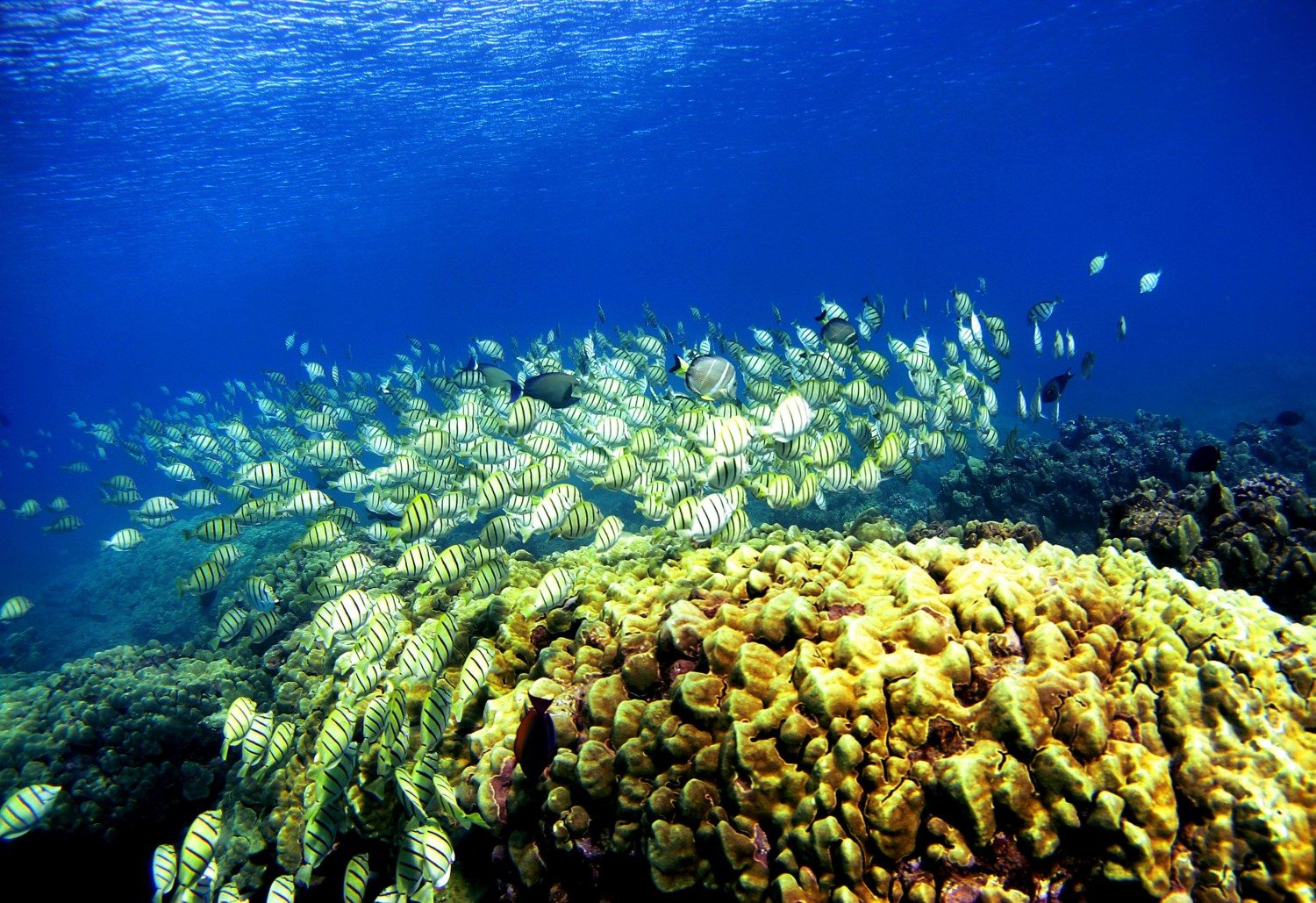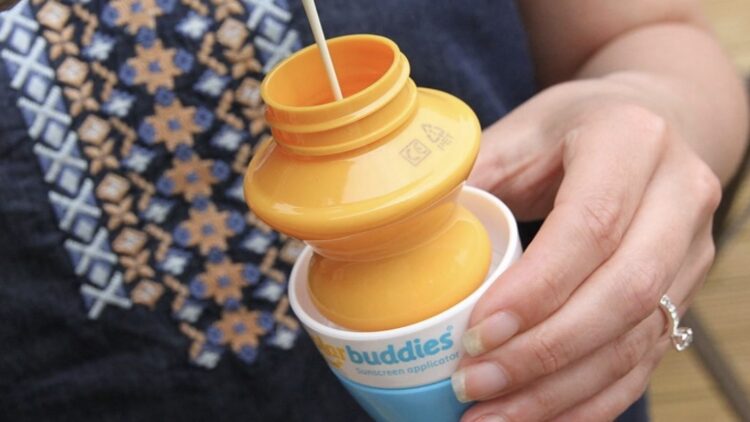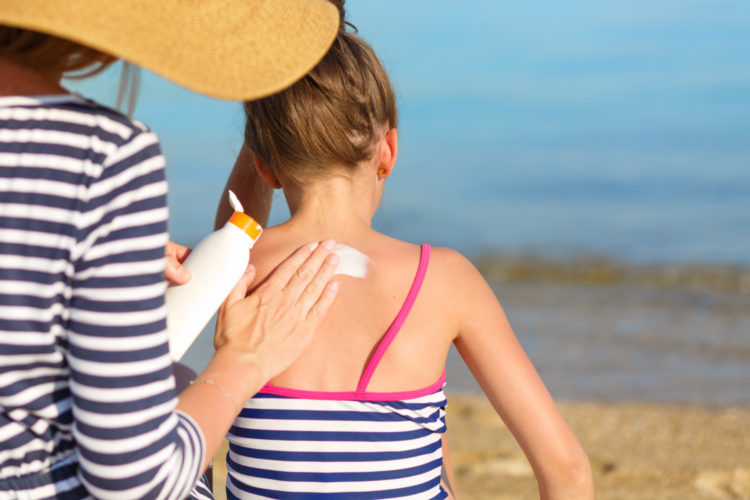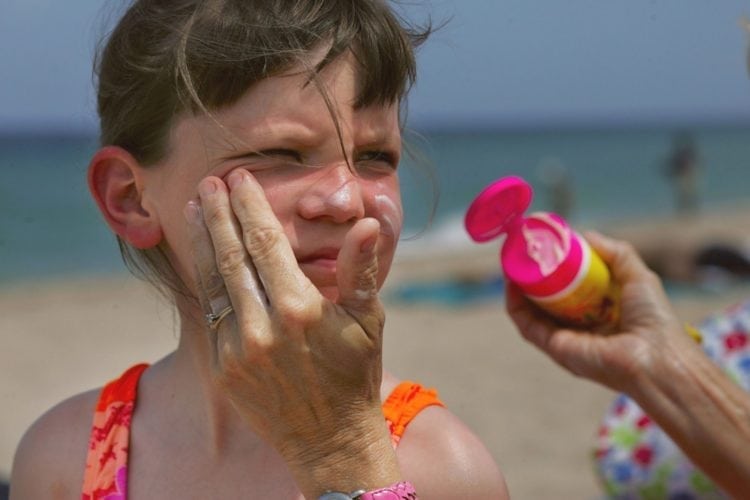Mom warns parents about aerosol sunscreen after baby suffers third-degree burns
Aerosol sunscreen is so fantastically convenient. Whether you have squirmy toddlers who just want to get in the pool already or just don’t want to get your hands all greasy with the traditional stuff, a few sprays of SPF 50 sound pretty darn nice.
But one mom who applied aerosol sunscreen to her child is outraged — she says it gave her daughter third-degree burns all over her face.
According to her post on Facebook, Rebecca Cannon carefully checked the instructions on the Banana Boat aerosol sunscreen she bought.
The bottle said it was safe for children 6 months and older to use, so she applied it to her hands and then to her 14-month-old daughter’s face.
Then, her daughter developed swelling and horrific third-degree burns on her cheeks and around her eyes.
You should know that the images below are a bit graphic:
“Kyla is back home after another hospital trip this morning due to extreme swelling, but she is doing OK and is in good spirits. Please watch and be careful when using aerosol sunscreens!” Cannon wrote. “I have done a lot of research since coming home and have found a disturbing amount of cases like ours. I don’t know why it’s not removed from the shelves!! . . . Please be careful—the sunscreen used was Banana Boat SPF 50 broad spectrum kids sunscreen. Have spoken with Banana Boat and at this point, besides a reimbursement for the product, [it’s] not sounding like they are going to do anything.”
Cannon said her daughter Kyla wasn’t even in the sun and that the burns have to be from the aerosol sunscreen.
“I just want the word out for parents to be careful as to what they are putting on their children,” she told POPSUGAR in an interview. “On the back of the bottle it said it was safe for use on all ages unless the child is under 6 months of age.”
RELATED: Mom Warns About Car Seat Safety After Daughter Sustains Horrifying Injury
It might be more of a hassle, but you’re probably better off sticking to the traditional stuff in the tube. ConsumerReports even says that adults shouldn’t use aerosol sunscreen on their face—better safe than sorry.
Hawaii May Ban Some Sunscreens
Did you know that the sunscreen you apply before you go swimming in the ocean is likely harming one of Mother Nature’s most important habitats?
Coral reefs are not just beautiful — they are also home to some of the most diverse species of aquatic life in the entire ocean. More than a million different species of fish and other sea creatures live in coral reefs, yet the sad truth is that this habitat is in very grave danger. In fact, marine biologists predict that more than 90 percent of the world’s coral reefs will die by 2050.
There are many culprits behind the loss of coral reefs, including “coral bleaching,” which is a result of global warming. And here’s another surprising enemy to coral reef health: Sunscreen.
Common Ingredients In Sunscreen Are Hurting Coral Reefs
That’s right: The SPF that you smartly slather on before a day at the beach could actually be harming Earth’s “underwater rainforest” — as coral reefs are called due to the diverse life forms they support.
A large 2015 study led by University of Central Florida researchers found that chemicals in sunscreen can actually lead to coral bleaching. Specifically, the chemicals oxybenzone and octinoxate, which are found in many common sunscreens, have been shown to both damage and kill coral reefs.
Oxybenzone absorbs UVB rays and short UVA rays, while octinoxate is a UV filter. According to NPR, these chemicals are used in popular brands like Bayer/Coppertone, Banana Boat, Hawaiian Tropic, and nearly 3,500 other sunscreen products.
It is estimated that 14,000 tons sunscreens end up in coral reefs every single year. Those chemicals affect the coral reefs at all stages of life.
“The chemical not only kills the coral, it causes DNA damage in adults and deforms the DNA in coral in the larval stage, making it unlikely they can develop properly,” according to a press release about the study from the University of Central Florida.
Executive director and researcher Craig Downs, of the nonprofit Haereticus Environmental Laboratory, warned that sunscreens could be damaging coral reef habitats irreparably.
“The use of oxybenzone-containing products needs to be seriously deliberated in islands and areas where coral reef conservation is a critical issue,” said Downs in the release. He continued:
“We have lost at least 80 percent of the coral reefs in the Caribbean. Any small effort to reduce oxybenzone pollution could mean that a coral reef survives a long, hot summer, or that a degraded area recovers. Everyone wants to build coral nurseries for reef restoration, but this will achieve little if the factors that originally killed off the reef remain or intensify in the environment.”
Hawaii Bans Oxybenzone And Octinoxate
Concerned citizens and lawmakers have sought to keep these harmful chemicals out of our oceans.
Hawaii is leading the way, and this week became the first state to pass a bill to prohibit the sale and distribution of sunscreens which contain oxybenzone and octinoxate. (Sunscreen products containing these ingredients will still be available but will require a prescription.) The bill passed on May 2, and if it is signed by Hawaii Governor David Ige, it will go into effect on January 1, 2121.
Hawaii State Senator Mike Gabbard (D), who championed the bill, is hopeful that the decision will inspire other states and countries to follow suit. “When you think about it, our island paradise, surrounded by coral reefs, is the perfect place to set the gold standard for the world to follow,” he told the Honolulu Star-Advertiser .
Why Coral Reefs Matter
Protecting our coral reefs is important for many reasons. Coral reefs not only help produce oxygen that humans and other animals breathe, but they also provide numerous other life-sustaining functions for communities around them. In fact, more than 450 million people derive food and income from the coral reefs, particularly those who work in tourist-heavy communities.
For this reason, the loss of the coral reefs would not just be a blow to the ecosystem, but to the economy as well. For example, Indonesia’s reefs are estimated to be worth $1.6 billion annually in U.S. currency, and this is just one of many countries that needs the coral reefs to help them survive and thrive.
So while some critics of the Hawaii’s sunscreen bill complain that it could be dangerous to limit the sales of any sunscreen due to concerns of skin cancer, it’s important to keep in mind that are many other safe sunscreen options. (One option are products from the Stream2Sea sunscreen line, which protects skin and has been shown in tests not to show harm to coral larvae and fish. For a full list of fish-friendly sunscreens, check out this list from Scuba Diver Life.)
As a general rule, sunscreens which include zinc oxide and titanium dioxide are generally considered best for the environment, so keep that in mind when reading labels at the store.
Let’s make sure that we keep the oceans healthy for the next generations to enjoy!


